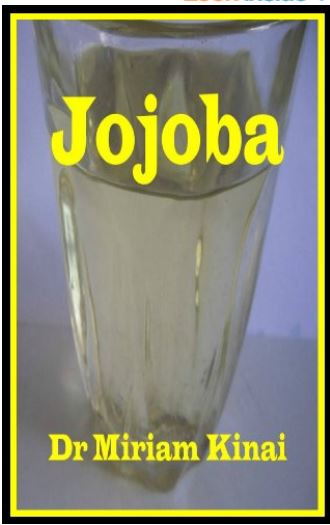Contents
What Is Sebum?
According to Wikipedia, ‘Sebaceous glands are microscopic exocrine glands in the skin that secrete an oily or waxy matter, called sebum, to lubricate and waterproof the skin and hair of mammals. In humans, they occur in the greatest number on the face and scalp, but also on all parts of the skin except the palms of the hands and soles of the feet. The type of secretion of the sebaceous glands is referred to as holocrine.’[1]
In other words, if you wash your hair on Sunday and do nothing else to it until Tuesday, you will notice a sticky substance which will adhere to your fingers if you gently rub your fingertips along your hairline or in your head on your scalp – this is sebum. The longer you wait to refresh or cleanse your hair and scalp, the more sebum is produced and builds upon the scalp.
It will also travel down the length of the hair as well. However, the only challenge with this is dependent on the type of texture of your hair. For the hair strands that are straight, it is an easy journey – you will recognize it better with people who have straight hair like some Caucasians, Asians, Thais, Indian, and people from the East. The hair tends to ‘stick together’ and look greasy especially at the roots. For our curly hair friends, the journey is not so easy because of the curls. The sebum has to meander down the length of the hair and most often it takes longer and you probably think there is no production because of this.
Advantages
Having the right amount of sebum moisturizing your hair strand can only mean great things for your hair. Here are a few points that I found:
- Sebum will keep your scalp adequately moisturized as long as it is a healthy flow
- It will keep your hair nourished from the root to the tip as long as it finds it sway there – you can accomplish this by brushing occasionally to help its distribution
- Because it moisturizes and protects the hair strand, it will help reduce the amount of breakage associated with dry hair
- It waterproofs and lubricates the skin and hair
- Because the property of sebum is slightly acidic, while it creates a film on the surface of the skin that acts as a barrier to bacteria, viruses, and other potential contaminants that might penetrate the skin. The pH of the skin is between 4.5 and 6.2, and this acidity helps to neutralize the primarily alkaline nature of contaminants
- It contains a lot of vitamin E, an antioxidant that protects the skin from aging as well as cancer
Disadvantages
Of course, if you have a situation where you have too much sebum, this can work against you in so many ways:
- an overproduction (overactive sebaceous glands) can lead to blocking the pores and sometimes causing acne on the skin and dermatitis on the scalp
- greasy looking hair – even after as little as two days after wash day
How It Helps Your Hair
Basically, our body’s production of sebum is to help our hair:
- To strengthen it
- To keep it moisturized and conditioned
- To help its healthy growth
- To keep the skin’s surface free of bacteria which sometimes inhibits growth
Similar Products

It has often been said that Jojoba oil mimics the sebum that our body produces. That being said, a lot of people with skin and scalp issue especially when it concerns dryness, will use jojoba oil to moisturize their skin and scalp. The oil is not heavy and disappears easily into the skin and scalp.
Jojoba oil comes from the seed of the Simmondsia chinensis (jojoba) plant, which is a shrub native to southern Arizona, southern California, and northwestern Mexico. The oil is really a liquid plant wax and has been used for medicine by the Native Americans over the years. Jojoba oil can be used for a wide range of different things:
- As a face, skin, and hair moisturizer
- As a makeup remover
- As an anti-aging agent – the oil’s properties help slow down the aging process
- Treats sunburns, scars, reduces wrinkles, and helps treat acne
- Simply as an emollient
- As a healing oil – jojoba oil speeds up wound closures and stimulates collagen synthesis;
Here are a few books that you can find on Amazon on the subject of jojoba oil:
2/Jojoba (Carrier Oils Book 10)

My Final Thoughts About Sebum And Your Hair
I am fortunate that I have no issues with my sebum production. I have a healthy scalp and hair. I practice a healthy hair care regimen to ensure that I do what’s best for my hair. I am aware of the protein and moisture balance that I need for healthy hair growth. Occasionally, I brush my hair and give myself scalp massages to help distribute my natural sebum along the hair strands. Hair care is a constant maintenance process. It can be tedious at times, and sometimes time-consuming, however, in order to reap the results of a luxurious head of hair, you have to be vigilant and consistent.
I wish you healthy hair practices and a healthy head of hair. If you have found this article useful, please let me know. And if there is anything, you can contribute that I may have missed, I would love to hear your feedback.Thank you.

REFERENCES
[1] Wikipedia LINK## https://en.wikipedia.org/wiki/…


I enjoy learning something new every day and your articles always teach me something I didn’t know about hair care. Either long or short, I’ve always taken great care of my hair. Now I know even more . Thank you for the information, Michelle.
Welcome back, Sue. Thanks for coming again. I am so happy that this article was a source of information for you. Yes, it is so important to make the time to take care of your hair. It is the picture frame for your face and sometimes, as the cliche goes, ‘a woman is as old as she feels but as young as she looks’ – or something to that effect! LOL
Michelle
Hi Michelle,
It is a informative and useful information. Mos of us don’t aware of the precious sebum generated on our scalp, which protect us from all kinds of microbes. Recently I experience hair loss. Is this related to sebum. To prevent hair loss, I start using hair oil, a mixture of many different kind of oil, including jojoba oil. Do you have advice on how to prevent hair loss? Thanks for sharing.
Hello there, Anthony.
Thanks for your visit. I am glad that you found it useful. Yes, as we grow older, our bodies experience change, and that can sometimes be reflected in our hair – of course, you know that stress is a ‘big time’ suspect! You can check out this article I wrote on Hair Loss and home remedies – maybe it can help you. Also, another one on Essential Oils – which I am sure that you will find a connection.
All the best!
Michelle
Hi Michelle,
You have the full range of knowledge and products for hair loss. I already bookmarked your site and will come back regularly. You are right that hair is one of good indicator of health. I need to have good health habit, as you mentioned to reduce stress and do more exercises, besides the supplement you suggest.
Hello Anthony,
Thanks for stopping by again, Anthony. Thanks for your kind words as well. Yes, it is the health on the inside that shows up on the outside.If you cultivate healthy habits, then I believe that things should be great all around and maybe with some minor adjustments.
All the best and stop by as many times as you like!
Michelle